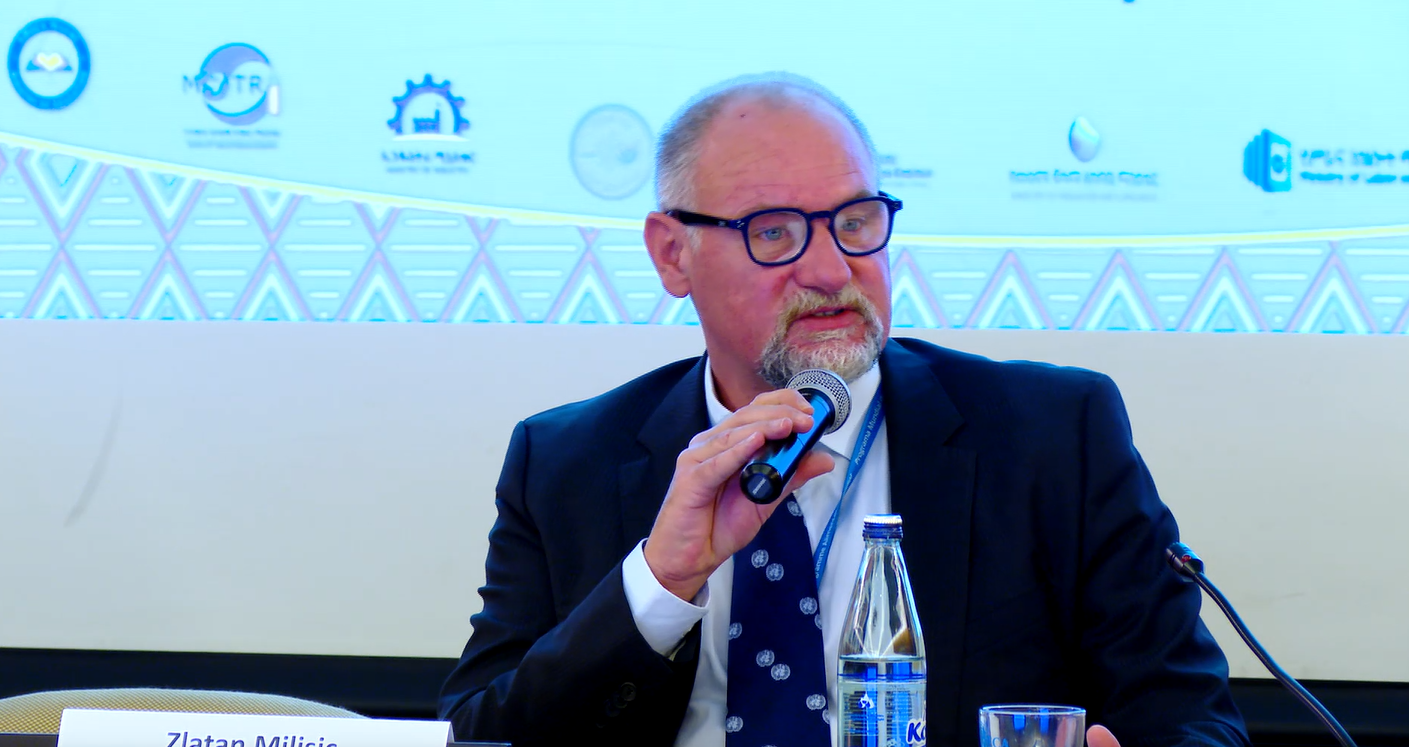WFP Country Director Says Ethiopia Registered Significant Economic Transformation by Focusing on Rural Dev’t, Poverty Reduction - ENA English
WFP Country Director Says Ethiopia Registered Significant Economic Transformation by Focusing on Rural Dev’t, Poverty Reduction

Addis Ababa, July 28, 2025 (ENA) -- Ethiopia has undergone significant economic transformation over the past decade by focusing on rural development, poverty reduction, and modernizing key production sectors, WFP Country Director Zlatan Milisic said.
Speaking at a panel held alongside the Second United Nations Food Systems Summit Stocktake (UNFSS+4), the Country Director emphasized on the significant economic transformation that Ethiopia has achieved over the past decade.
He also appreciated the efforts that have been invested in Ethiopian food systems transformation as well as nutrition by the Government of Ethiopia and its relevant partners.
The average 10 percent economic growth of Ethiopia over the past decade lifted millions out of poverty and improved various key social indicators, Milisic noted.
This has been accentuated by the Homegrown Economic Reform Program and the 10 Year Development Plan for Ethiopia, pathway for prosperity 2021 to 2030, he added.
Collectively, these frameworks evoke strategic pillars of economic growth, productivity, and competitiveness.
According to him, technological capability, digital economy, sustainable development financing, private sector-led economic growth, resilient green economy, among others, trigger economic transformation and create an enabling environment for investment for a resilient and climate-smart food systems in Ethiopia.
This vision, the Country Director underscored, has been translated by several initiatives such as the Green Legacy Initiative, Bounty of the Basket, irrigated wheat initiative, the agricultural commercialization cluster, integrated agro-industrial parks, among others.
He further noted that the productive sectors and consequently related agri-food system transformation still face structural challenges despite the efforts.
Milisic finally expressed WFP's commitment to supporting equitable, peaceful and prosperous Ethiopia, driven by self-reliance and resilience.
On her part, Ethiopia’s Health Minister Dr. Mekdes Daba said that Ethiopia has embarked on bold and coordinated journey to transform its food system over the last four years, prioritizing integrated planning across agriculture, climate, biodiversity, and nutrition.
The country has been striving to achieve a resilient, sustainable, and inclusive food system that ensures food sovereignty and nationwide well-being through the establishment of a national food system transformation plan and nutrition governance model, she added.
Notably, the Green Legacy Initiative as well as the wheat initiative has achieved national self-sufficiency, with plans to replicate this model for other strategic crops, the Minister stated.
The Homegrown School Feeding Program is another highlight, currently reaching 7.5 million students, with a goal of universal coverage by 2030 to improve child nutrition and strengthen food economies.
Dr. Mekdes also expressed pride in the transformative effort of Sekota Declaration to end child stunting.
This initiative has already prevented 8.7 million cases of stunting, demonstrating a tangible impact on communities.
Moreover, she emphasized on the need for targeted investments and stronger multi-stakeholder partnerships to realize a climate-smart agri-food system in the country.
The Sekota Declaration exemplifies this approach, mobilizing domestic financing and engaging multiple sectors to apply evidence-driven actions.
Looking ahead, Ethiopia is actively seeking partnerships in areas such as fertilizer production, mechanization, nutrition, and supply chain investment, she elaborated.